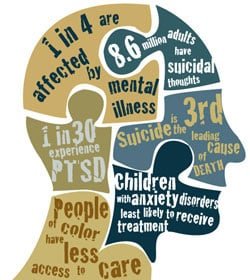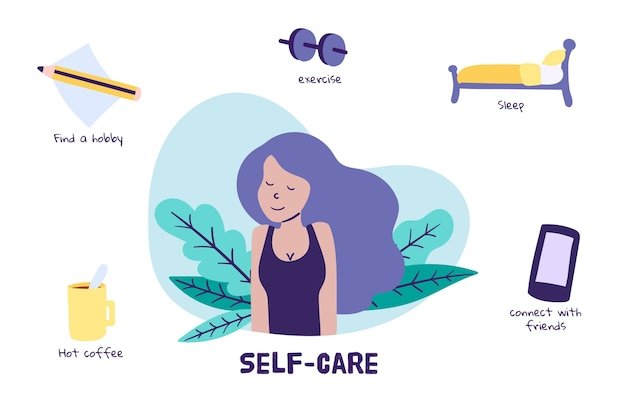TACKLING BORDERLINE PERSONALITY DISORDER: A CONVERSATION WITH Dr. GLEXPACE
Deep Thinking | 493 Visits

As we all know how difficult it can be to live with BPD. The first step towards managing it is gaining a better understanding of the disorder. Let's hear it from Dr. Glexpace and also navigate various treatment methods that can help you to cope with its challenges.
SARAH: Dr. Glexpace, today I want to talk about Borderline Personality Disorder, as I am struggling with this disorder.
BPD has been affecting my life adversely. I want to learn the various options available for me to cope with this problem.
Dr.GLEXPACE: Sure Sarah, I would love to help you, but first of all I would like to appreciate your courage to seek help.
You know what Sarah, the first step towards the journey of recovery is acceptance and seeking help. Most people struggling with BPD often gives up on this crucial step. So I appreciate your strength and courage, Sarah.
Now that you have already taken your first step let's move on to the second step which is understanding the problem. As it is said we cannot deal with an unknown enemy. So BPD is generally characterized by intense mood swings, unstable relationships, and a deep fear of abandonment. Splitting is also a very common issue observed in people struggling with BPD. Also, people with BPD often experience strong, intense emotions, which consequently leads to impulsive behaviors and self-destructive tendencies.
In severe cases, people struggling with BPD often develop suicidal and self-harm tendencies.
SARAH: Dr.I have noticed these emotions and reactions in me. These reactions are very difficult to control and are taking a
the hard toll on my personal and professional life.
Dr.GLEXPACE: I can empathize with you, Sarah. It is very difficult to control such emotions and reactions. But you know what the positive side is that there are lots of effective treatments available to help you recover easily from BPD.
SARAH: I am curious to know about them; please tell me what are the treatments and how to decide
which one suits me the best?
Dr. GLEXPACE: Sure Sarah, let's talk about each of them one by one. The most common treatment of BPD is Dialectical Behaviour
Therapy(DBT). DBT is based on cognitive-behavioral principles. DBT focuses on learning basic skills such as mindfulness, distress tolerance, emotion regulation, and interpersonal effectiveness. The ultimate goal behind this is to teach the person how to live in the moment, develop healthy ways to cope with stress, regulate emotions and improve relationships with others. In DBT with individual sessions
We also combine group sessions in which you will learn from others facing similar challenges which ultimately creates a supportive environment.
SARAH: That sounds promising. What other treatments are available?
Dr. GLEXPACE: The next approach that is widely used to treat and manage the symptoms of BPD is focusing on identifying and changing negative thought patterns and behaviors that contribute to distress. This approach is technically called Cognitive
Behavioral Therapy (CBT). CBT is particularly helpful in addressing self-destructive behaviors and improving self-esteem.
SARAH: Dr. What are the roles of medications in managing the symptoms of BPD? Are they helpful?
Dr. GLEXPACE: Great question Sarah. There is a misconception among lots of BPD sufferers that they can manage their problems solely through medications. Look, medications can play an important role in managing certain symptoms of BPD such as depression, anxiety, and mood swings. However, it is very crucial to remember that medications alone are not enough to deal with the problem. You need regular, consistent, and disciplined therapy accompanied by prescribed medications to recover from the symptoms of BPD.
SARAH: Dr. what other things do you think are necessary to be incorporated into our daily lifestyle other than therapy and medications for better management of distress.
Dr. GLEXPACE: The crucial thing in the course of recovery is a healthy mindset. Remember that treatment is not just about therapy and medications; alongside them, one should also incorporate some self-care practices. Engage a part of your day in such activities that bring you joy. Yoga, meditation, and practicing mindfulness all help in managing the symptoms efficiently, and speed up the scope of recovery.
SARAH: Dr. How would I know which therapy should I follow?
Dr. GLEXPACE: Remember Sarah, that treatment is most effective when tailored to your unique needs, and that's why we psychologists are here for you. We work together with you to navigate the path of recovery. Keep in mind that you are not defined by your diagnosis,and with the right tools and mindset, you can lead a fulfilling life. Being a responsible Dr. I would never recommend anyone struggling with any of the mental illnesses to practice self-diagnosis.
SARAH: Thank you Dr. for being honest and patient enough to answer my all doubts and queries. I will do my best. thanks again for believing in me. Your support and encouragement mean a lot to me.
Dr. GLEXPACE: Always, Sarah. You're not alone on this journey. Remember that this journey won't always be easy, but with patience and support, changes can happen. Surround yourself with a strong support system and don't hesitate to reach out when you need help.
Thanks for reading!
If you enjoyed please leave a like, join discussion in the comments and share it
with your friends!
Pratyusha941760's Recent Articles







